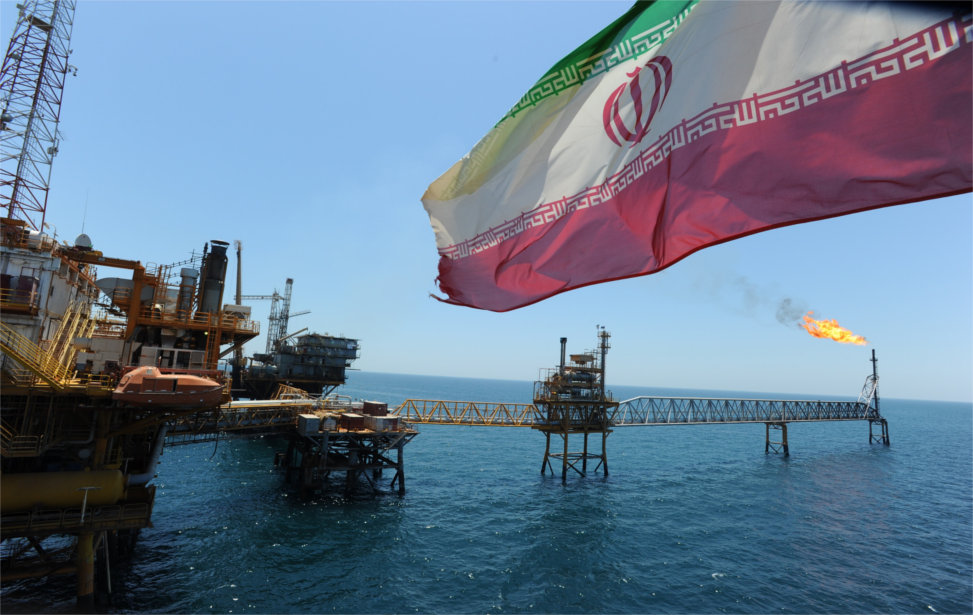Area: 1,648,195 km
Languages: Persian (official)
Religions: Muslim (99.4%)
Population: 81,824,270 (July 2015)
Capital: Tehran
GDP:(2014) $ 1,334 trillion
GDP per Capita: $17,100
Industries: Petroleum, petrochemicals, gas, fertilizers, caustic soda, textiles, cement and other construction materials, food processing (particularly sugar refining and vegetable oil production), ferrous and nonferrous metal fabrication, armaments
Exports:
- $95.71 billion (2014)
- petroleum 80%, chemical and petrochemical products, fruits and nuts, carpets, cement, ore
- China 29%, India 11.9%, Turkey 10.4%, Japan 6.5%, South Korea 4.8% (2014)
Imports:
- $61.25 billion (2014 est.)
- industrial supplies, capital goods, foodstuffs and other consumer goods, technical services
- UAE 30.6%, China 25.5%, Algeria 8.3%, India 4.6%, South Korea 4.4%, Turkey 4.1% (2014)
Nowadays Iran company registration and investment are one of the hottest topic in the business news. Iran already has one of the best-performing stock markets over the past year.
Iran is a member of the Developing 8 (D-8) group of developing countries which also includes Bangladesh, Egypt, Indonesia, Malaysia, Nigeria, Pakistan and Turkey. The organization aims to encourage economic cooperation between the member states and to strengthen the role of developing countries in the global economy. In addition, Iran is a member of ECO (Economic Cooperation Organization) which also includes Pakistan, Turkey, Afghanistan, Tajikistan, Kazakhstan, Kyrgyzstan, Uzbekistan, Azerbaijan, and Turkmenistan. Eco guidelines have been set for cooperation in various fields including the need for reducing tariff and non-tariff barriers to trade, and establishing communications links and infrastructure.
Iran company registration and investment reasons:
Strategic Location: A unique geographical location at the heart of a cross-road connecting the Middle East, Asia and Europe, empowered by many inter- and trans-regional trade, customs, tax and investment arrangements.
Market Potentials and Proximity: Vast domestic market with a population of approximately 80 million and access to neighboring markets with approximately 300 million inhabitants.
Labor Privileges: Large pool of trained and efficient manpower at very competitive costs in a diversified economy with an extensive industrial base and service sector.
Developed Infrastructure: Territory developed networking in the area of telecommunication, roads and railways across the country.
Low Utility and Production Cost: Diversified range of energy, telecommunication, transportation, as well as public utilities.
Abundant Natural Resources: Varied and plentiful reserves of natural resources ranging from oil and gas to metallic and non-metallic species reflecting the country’s accessibility to readily available raw materials.
Climatic Characteristics: A four-season climatic endowment as a privilege to agricultural activities throughout the country and throughout all seasons.
Fiscal Incentives: Iranian companies are subject to corporate income tax on their worldwide income. There are no differences between the tax treatment of domestic and foreign income. After corporate profit is taxed at 25%, there is no further tax on the balance, whether distributed as dividends or retained in the business.
Various tax highlighted for Iran company registration as follows:

Resident companies: Resident companies are companies and other entities established under the Iranian Commercial Code, as well as registered branches and representative offices of foreign companies.
Foreign capital: No net worth tax on foreign capital is levied in Iran.
Double taxation relief: If the legal persons who reside in Iran but earn income from abroad and pay taxes thereon to the local state of the place of earning, would declare such earnings in their tax return or balance sheet and profit and loss account, as the case may be, in conformity with the provisions of the Direct Taxes Act, then the taxes paid by them outside the country or a part of the tax that can be attributed, in proportion with their total taxable income, to the income derived abroad, whichever be lesser, shall be deductible from their income tax.
Non-resident companies: Non-resident companies are taxed in Iran on their income derived from Iran. Those receiving royalties, license fees or interest are subject to a With-holding tax deducted at source from such payments, which is considered final. Non-resident companies providing services inside or outside Iran are also subject to withholding tax, the withholding tax being deducted from payments for such services.
Foreign investor can obtain 100% ownership.
IRAN INVESTMENT INCENTIVES
This section includes only non-tax incentives. For tax incentives see pdf section
Foreign Investments admitted in accordance with the provisions of FIPPA shall enjoy the facilities and protections available under the FIPPA. Iran investments may be admitted under the following two categories:
a) Foreign direct investment (FDI) in areas where the activity of the private sector is permitted;
b) Foreign Investment in all sectors within the framework of “Civil
Participation”, “Buy-Back” and “Build-Operate-Transfer” (BOT) schemes where the return of capital and profits accrued is solely emanated from the economic performance of the project in which the investment is made, and such return of capital and profit shall not be dependent upon a guarantee by the government or government companies and/or banks.
Note: So long as the Iran investment in BOT schemes referred to in Para (b) above and its accrued profits are not amortized, the exercise of ownership right by the foreign investor over the remaining capital in the recipient economic enterprise is permitted. Transfer abroad of the portion of the foreign capital imported into the country within the framework of the investment license but remained unused is exempted from all foreign exchange, and export and import laws and regulations. Free zones are exempted from certain national laws, and the various free zone authorities may establish their own commercial and legal codes in one matters. In the free zones, individual and corporate income taxes are waived for at least 15 years and customs duties for free zone items entering Iran are minimal. Foreign subjects investing in the free zones can have up to 100% ownership in any company. They can import and export foreign currency unrestrictedly and utilize the application of free market rate on all financial transactions.
Residents of the free zones are exempted from the payment of charges which normally apply on the mainland. They are, however, subject to certain charges imposed in the free zones, and the Boards of directors of the free zones are empowered to determine the level of charges (subject to the approval of the Supreme Council for Free Zones). The Qeshm Island Free Zone exempts manufacturers from taxes, customs and other duties, and offers natural gas to manufacturers at a fraction of international prices.
Iranian National Tax Administration.PDF
INVESTMENT GUARANTEE AND PROTECTION
General
Foreign investments under FIPPA shall equally enjoy all rights, protections, and facilities available to local investments. Foreign investments shall not be subjected to expropriation or nationalization, unless for public interests, by means of legal process, in a non-discriminatory manner, and against payment of appropriate compensation on the basis of the real value of the investment immediately before the expropriation. (Application for compensation shall be submitted to the Foreign Investment Board within one year from the date of expropriation or nationalization).
Investment protection Agreements
Iran is a party to the following regional agreements:
- The OIC (Organization of Islamic Conference) regional investment protection agreement;
- The Agreement of the Islamic Corporation for the Insurance of Investment.



